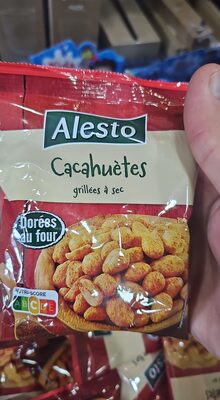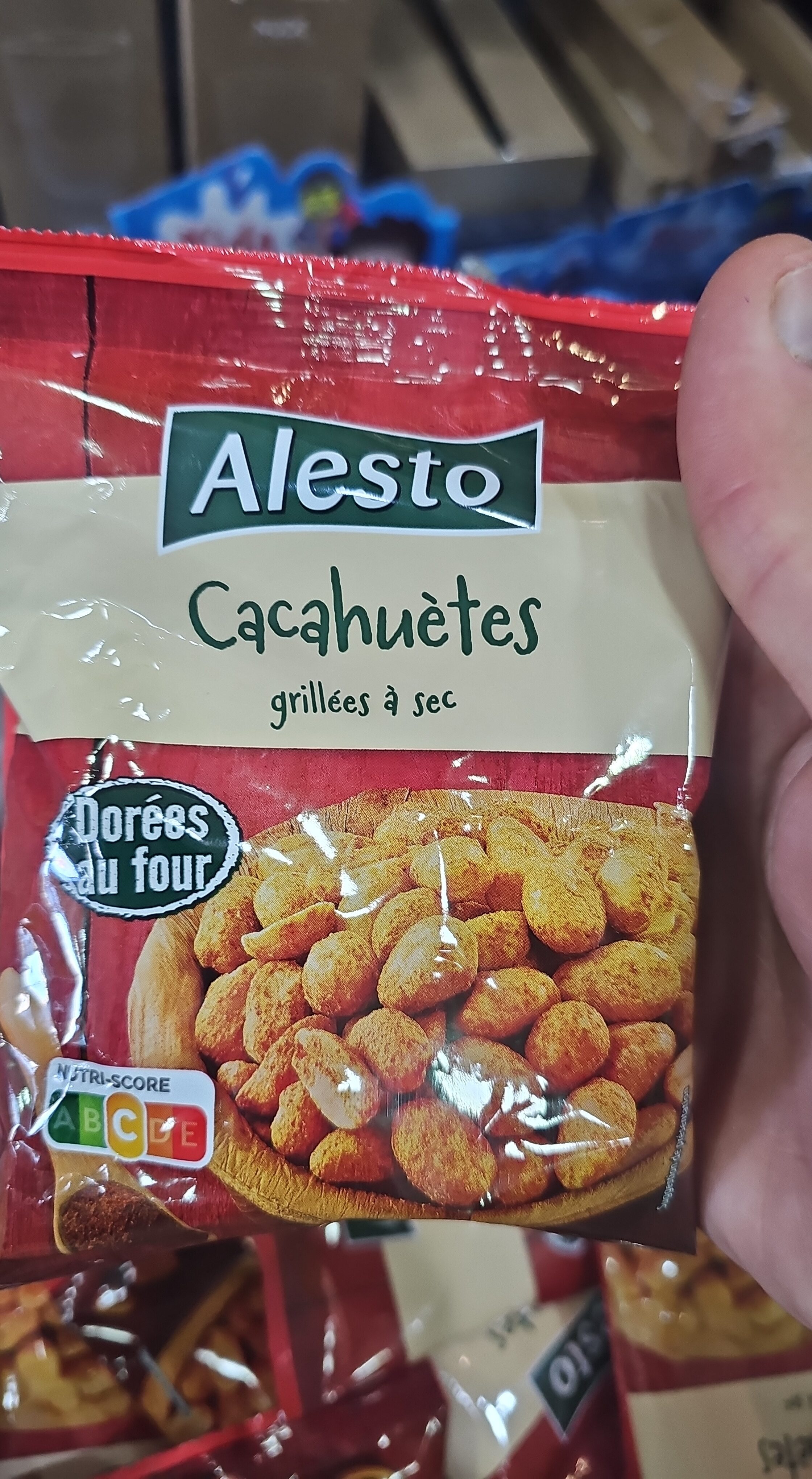Cacahuètes grillées à sec - Alesto - 150g
Ambiguous barcode: This product has a Restricted Circulation Number barcode for products within a company. This means that different producers and stores can use the same barcode for different products.
×
This product page is not complete. You can help to complete it by editing it and adding more data from the photos we have, or by taking more photos using the app for Android or iPhone/iPad. Thank you!
×
Barcode: 20921002
Common name: Cacahuètes aromatisées et grillées à sec
Quantity: 150g
Packaging: fr:Sachet plastique, fr:Sachet plastique de 5g
Brands: Alesto
Categories: Plant-based foods and beverages, Plant-based foods, Legumes and their products, Snacks, Legumes, Salty snacks, Nuts and their products, Nuts, Roasted nuts, Peanuts, Salted nuts, Roasted peanuts, Salted peanuts
Labels, certifications, awards: Nutriscore, fr:Déconseillé aux jeunes enfants
Stores: Lidl
Countries where sold: France
Matching with your preferences
Health
Ingredients
Food processing
Additives
Ingredients analysis
Nutrition
Environment
Carbon footprint
Packaging
Transportation
Report a problem
Data sources
Product added on by kiliweb
Last edit of product page on by roboto-app.
Product page also edited by aleene, date-limite-app, ecoscore-impact-estimator, foodless, inf, off.4d83691b7127328886e514b556e5d5, openfoodfacts-contributors, tacite, yuka.R3ZnT0ZhOWRtT1lzeXZRRS9qWHE1dkF0Mks2TFZHZStlKzhMSVE9PQ, yuka.RnFvbFBQMGYrOE1ieGZZaytpdjFxKzVFbWJpM2RrKzdOdWRNSUE9PQ, yuka.V3BBRkM0UXhxOWxRcC9BOSswbkx5c2hFM0lldllXZXZldlkwSVE9PQ, yuka.Vko4ZkdZSStpdmtvdGNRbnJ6cUY5OGhONjhlRGNqaVdDZTRiSVE9PQ, yuka.sY2b0xO6T85zoF3NwEKvlh1LXeqPr2ribhjlyF-13fSXM7jTb_cjvpDVY6s.
Last check of product page on by aleene.






